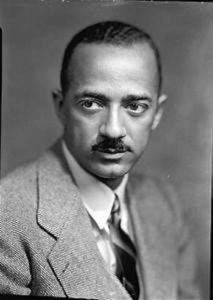
WilliamH. Hastie
William H. Hastie was born on this date in 1904. He was a Black attorney, judge, magistrate, and state government executive.
He was born in Knoxville, TN. He received his A.B. from Amherst College In 1925, an LL. B from Harvard University in 1930, and an S.J.D. from the same institution in 1933. He received honorary degrees from many other institutions, including Rutgers University, Howard University, and Temple University. Hastie was admitted to the bar in 1930 and was in private practice for three years. In 1933, he became assistant solicitor of the Department of the Interior until 1937.
He became a judge serving the District Court of the Virgin Islands then. In 1939, he became dean of the Howard University School of Law. In 1942, as part of America's Black Cabinet, he was the first civilian aide to the secretary of war. He was governor of the Virgin Islands between 1946 and 1949 before his position as the U.S. Circuit Court of Appeals judge.
On January 15, 1943, he resigned to protest racial segregation and discrimination in the armed forces. Later that year, the NAACP awarded Hastie its Spingarn Medal "for his distinguished career as a jurist and an uncompromising champion of equal justice."
Hastie worked with Charles Houston, Thurgood Marshall, and others on the strategy and on a number of the cases leading to the 1954 decision in Brown v. Board of Education. William Hastie died on April 14, 1976, in Philadelphia.
Black Heroes of the Twentieth Century
Edited by Jessie Carney Smith
Copyright 1998 Visible Ink Press, Detroit, MI
ISBN 1-57859-021-3